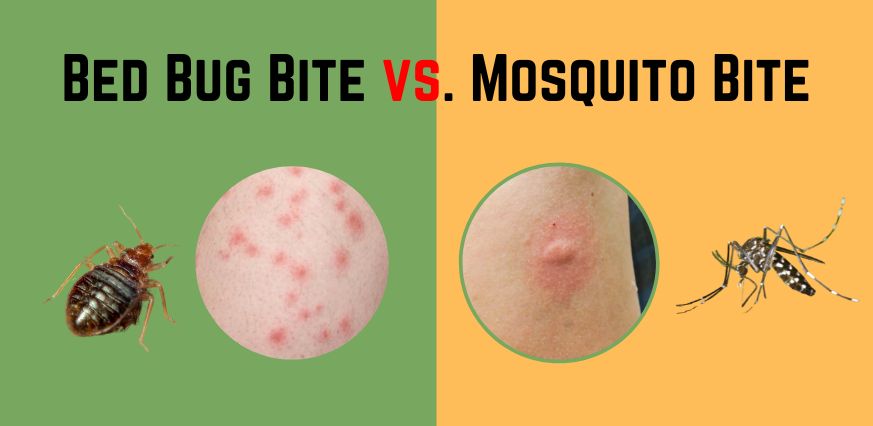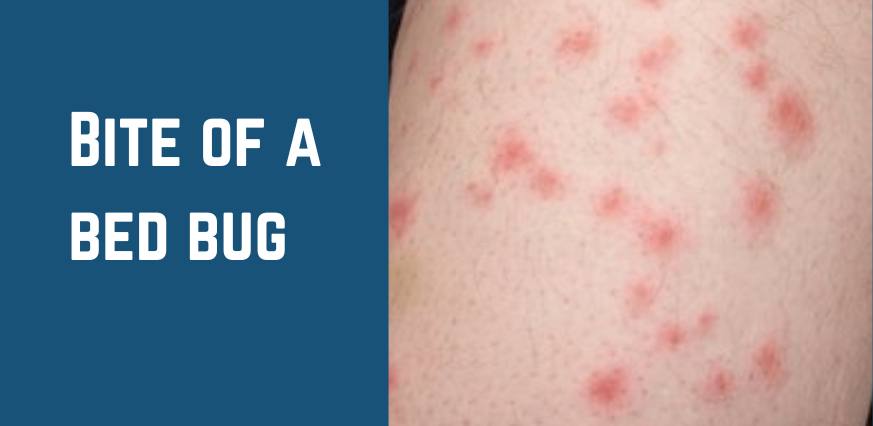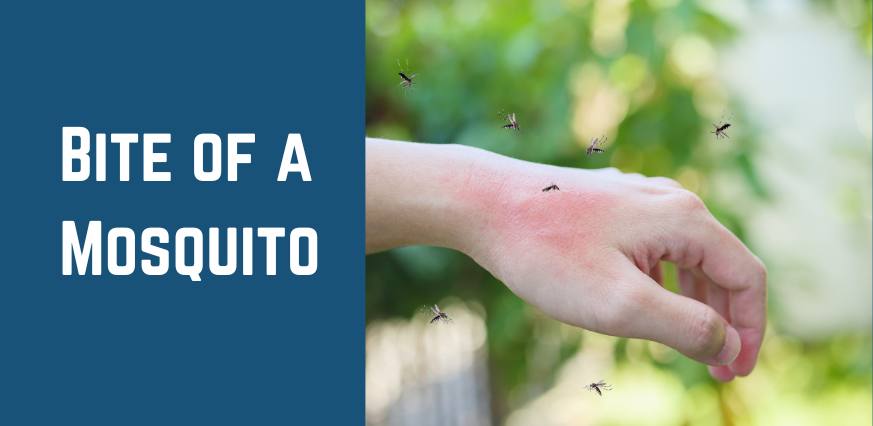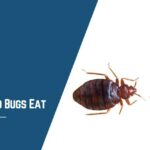
Was it a bed bug or a mosquito causing those tiny red pimples and the constant itching? Finding the offender may be essential to providing efficient relief and solving the problem right away. We’ll examine the differences between mosquito and bed bug bites in this post, so you can tell one from the other and get advice on prevention and treatment.
What does the bite of a bed bug look like?

Bed bug bites typically appear as characteristic lines or clusters on exposed skin as you sleep. The areas most commonly afflicted are the arms, legs, and shoulders. These bites are distinguished by tiny red welts, most of which have a prominent red dot in the middle.
Bed bug bites can emerge in different patterns; some may be in a straight line, while others may be arranged in a zigzag fashion.
What does the bite of a mosquito look like?

Bite marks from mosquitoes have various qualities. They usually show up as raised, isolated pimples with a clear white halo encircling a red core.
Mosquito bites, in contrast to bed bug bites, can appear anywhere on exposed skin, although they are most frequently on the neck, arms, and ankles. A characteristic that distinguishes mosquito bites from bed bug bites is the occasional presence of a tiny puncture mark in the center of the bite.
What does the bite of bed bugs feel like?
The bite of a bed bug is distinguished by its gradual onset, frequently appearing sometime after exposure. The symptoms may not appear for hours or even days.
Sometimes, a few days after being exposed to bed bugs, people may notice the appearance of bites. It is difficult to link symptoms to an initial interaction with bed bugs because of this delayed reaction, which makes bed bug bite diagnosis unpredictable.
What does the bite of a mosquito feel like?
A mosquito bite causes symptoms to appear sooner. Generally, mosquito bites heal quickly, sometimes even minutes after the bite. People may begin to itch almost immediately, and the itch may peak in intensity in a matter of hours.
But in contrast to bites from bed bugs, the pain from mosquito bites usually goes away in a few days. In contrast to the delayed reaction frequently associated with bed bug bites, mosquito bites are easier to identify quickly after exposure due to their rapid appearance and subsequent drop in symptoms.
When do bed bugs bite?
Being nocturnal insects, bed bugs usually bite at night while their host is asleep. The bites may cause excruciating burning, swelling, and itching, causing great agony to the person bitten. Bed bug bites can have a substantial psychological impact in addition to physical symptoms, which can result in worry and difficulty sleeping.
Anxiety about getting bitten again might cause sleep disturbances and prolong the state of tension. It’s crucial to remember that although bed bug attacks can be quite upsetting, these pests rarely transmit diseases through bites.
When do mosquitoes bite?
Although some species bite during the day, mosquitoes are most active in the evening and at night. In comparison to bed bug bites, their bites often cause modest swelling and inflammation, making the discomfort they cause less severe.
But mosquitoes are more than just a bothersome source of irritation. In certain areas, mosquitoes are recognized to be the carriers of the West Nile virus, Zika, and malaria, among other illnesses. Mosquito bites become a more serious public health problem due to the possibility of these infections spreading, necessitating preventive measures and, occasionally, medical intervention.
How to treat bed bug bites?
Some of the Bed bug bite treatments are given below:
- Requires hiring a pest control expert to tackle the underlying infestation.
- To treat irritation and swelling, use topical corticosteroids and Antihistamines that are available over the counter or with a prescription.
- Use soap and water to clean bites to avoid infection.
How to treat mosquito bites?
- Calamine lotion or ice packs can be used to lessen swelling and itching.
- If necessary, take over-the-counter antihistamines.
- Consult a physician if symptoms get worse or infection symptoms emerge.
How to prevent bed bug bites?
- Before visiting, check your hotel room and luggage for evidence of bed bugs.
- After a trip, wash your baggage and clothing in hot water.
- Cover box springs and mattresses with protective covers.
- If you believe you may have an infestation, get expert assistance.
How to prevent mosquito bites?
- Apply insect repellent that contains picaridin or DEET.
- When you’re outside, especially at dawn and dark, wear long sleeves and pants.
- Remove any standing water to get rid of mosquito breeding grounds around your house.
You may also like:
FAQs
What do bed bug bites look like?
What do mosquito bites look like?
When do bed bugs bite?
When do mosquitoes bite?
How do you treat bed bug bites?
How do you treat mosquito bites?
How do you prevent bed bug bites?
How do you prevent mosquito bites?
Conclusion
It’s critical to distinguish bed bug bites from mosquito bites for efficient treatment and prevention. When dealing with an infestation or defending yourself against outdoor pests, knowing the specifics of each bite will help you take the appropriate action to relieve the discomfort and protect your health. Remember that speaking with a healthcare provider is always a wise decision if questions remain or symptoms get worse.


